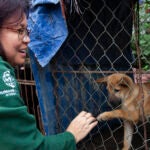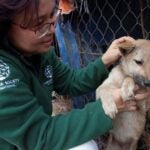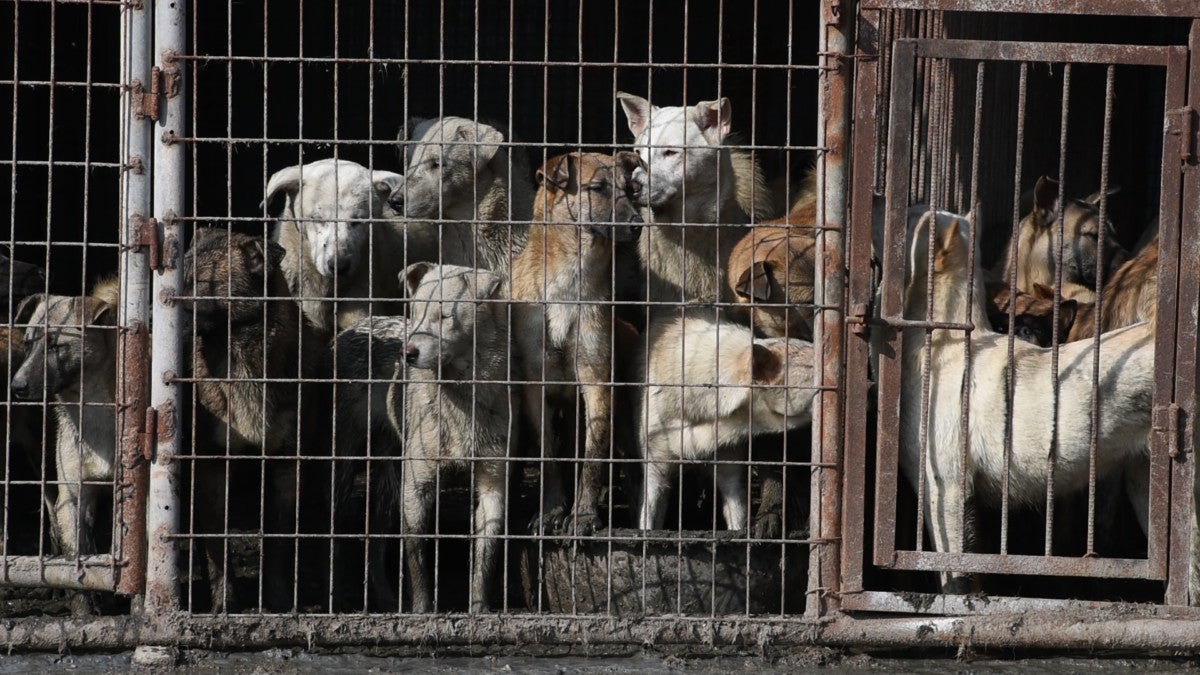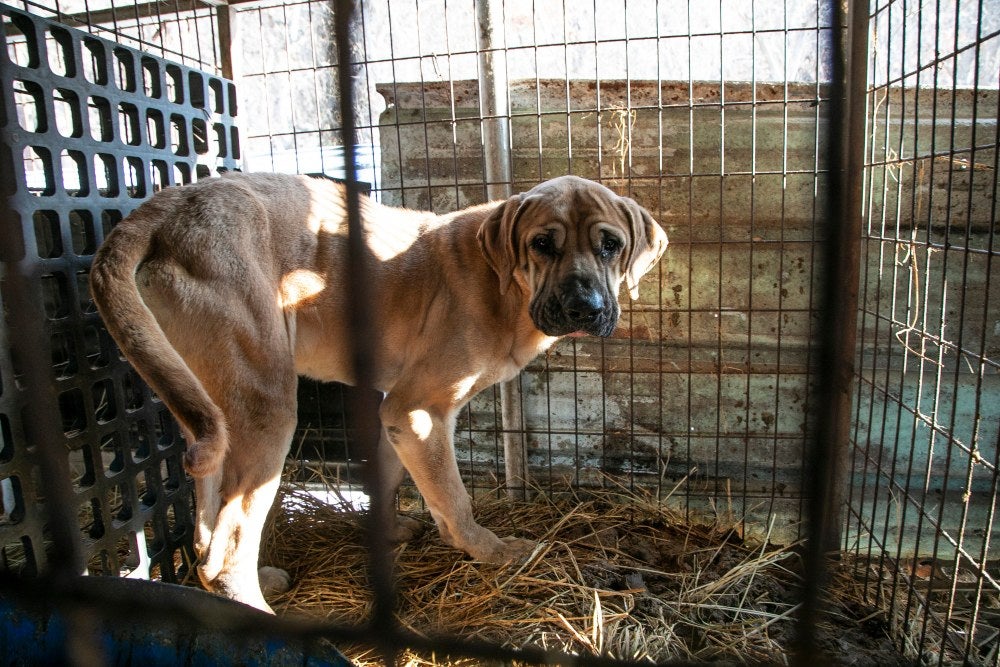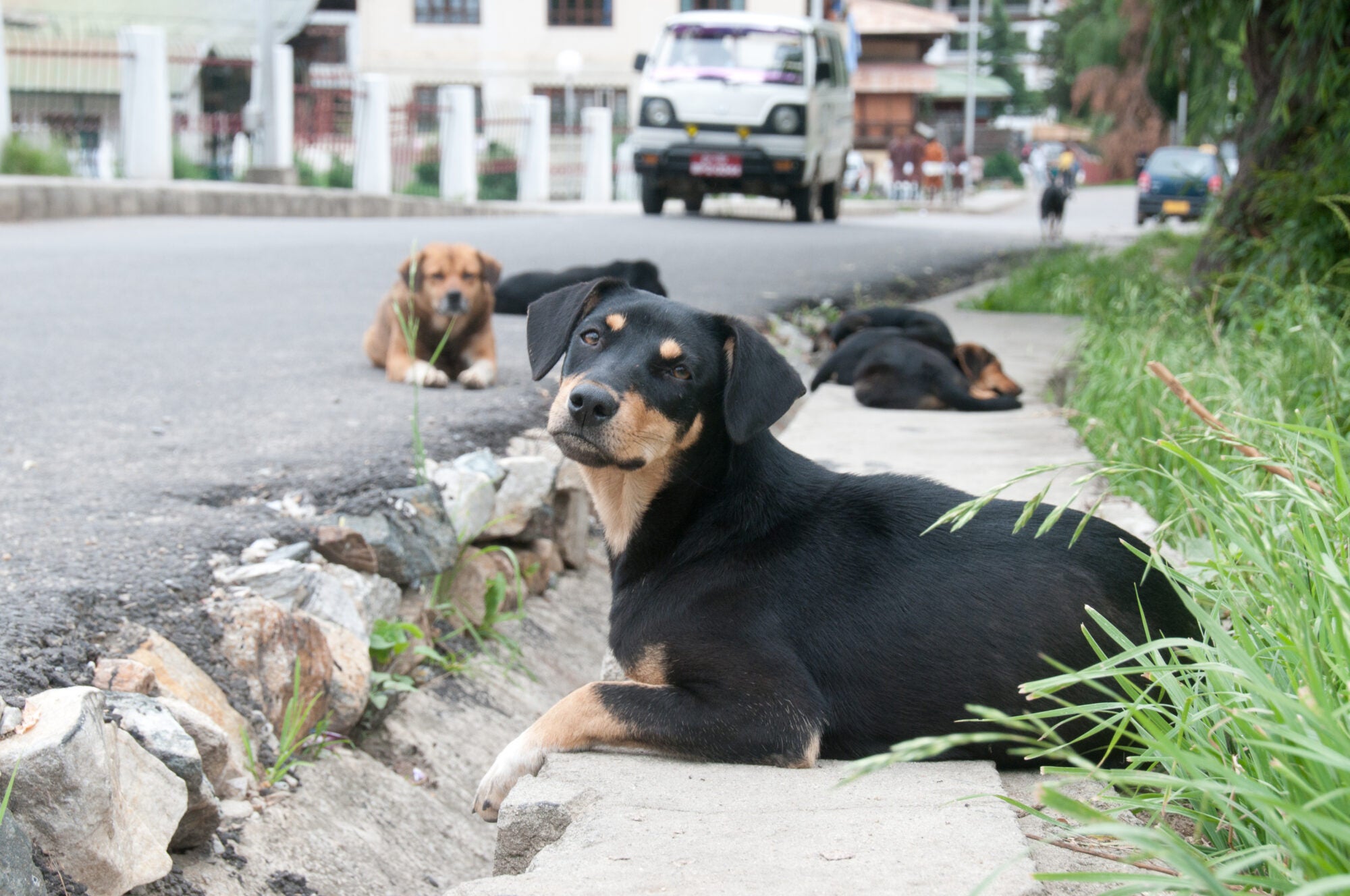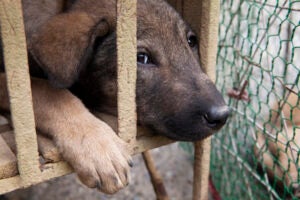
HANOI, Viet Nam―The People’s Committee of Dong Nai Province and Humane Society International in Viet Nam have signed a unique three-year agreement to work together to tackle the dog and cat meat trades and promote companion animal welfare throughout the province. This first-of-its-kind agreement will see the Dong Nai authority and HSI collaborate with local stakeholders to implement a vaccination program against the deadly rabies virus, using HSI’s unique mobile phone app to track vaccination rates.
Public awareness campaigns will also be rolled out to discourage dog and cat meat consumption, in addition to law enforcement activities to tackle the illegal trafficking of dogs and cats for slaughter, and assistance for dog and cat meat industry workers to transition to alternative livelihoods. Helping these workers switch to new livelihoods is a key component of HSI’s unique Models for Change program, which was launched in Viet Nam in Thai Nguyen province in November 2022 with the closure of a dog meat slaughterhouse and restaurant which now operates as a general store.
Tham Phuong, Viet Nam director for Humane Society International, said: “Safeguarding the welfare of our dog and cat companions not only brings animal welfare benefits, but also protects our communities from preventable diseases. We are delighted to be working in cooperation with Dong Nai province with the strong support of the provincial leaders of The People’s Committee, the leaders of the Department of Agriculture and Rural Development, and the Sub-Department of Livestock Production and Animal Health to implement this exciting program. Together we will improve rabies vaccination coverage and implement humane dog population management, as well as end the trade in and slaughter of dogs and cats. We know that as well as being immensely cruel, the dog and cat meat trades also pose a very real and grave risk to public health by facilitating transmission of the deadly rabies virus. Our joint program will bring the province practical ways to tackle those threats for the benefit of people and animals.”
Nguyen Truong Giang, director of Dong Nai Sub-Department of Animal Livestock Production and Animal Health, said: “The province has been trying to build an animal disease-free zone as recommended by the Ministry of Agriculture and Rural Development for its two cities and all towns for the period 2021-2030. Therefore, through the main activities of this project including the control of interprovincial dog transport and applying HSI’s cell phone app information technology to manage rabies vaccinations and accurately record the population of domestic dogs, we expect that these localities will soon become rabies-free zones and contribute to our goals.”
The link between rabies transmission and the dog meat trade in Viet Nam has been clearly identified by the World Health Organization[i]; the elimination of rabies is being hindered by the continuation of dog meat trade activities. Data from the National Institute of Hygiene and Epidemiology shows that a significant proportion of patients infected with the virus after contact with dogs were not bitten by the dogs but had either slaughtered or eaten them. Studies of brain samples of dogs collected from slaughterhouses in northern and southern provinces of Viet Nam have also detected the presence of the rabies virus. Such is the link between rabies and the dog meat trade that in 2018 and 2019, the authorities of Hanoi and Ho Chi Minh City respectively advised people not to consume dog meat to reduce their risk of contracting and spreading the disease.
Dog meat facts:
- Slaughtering an estimated 5 million dogs and 1 million cats per year, Viet Nam is home to the most prolific dog and cat meat trades in Southeast Asia.
- While the sale and consumption of dogs and cats is not illegal in Viet Nam, the unregulated trans-provincial movement of dogs and cats has been illegal since 2009, and pet theft was made a punishable offence in 2016. While several cities including Hanoi and Hoi An have pledged to end the trades, enforcement of laws is rare and trucks continue to openly transport hundreds of dogs and cats on national highways.
- A belief by some consumers persists—despite no scientific evidence—that dog and cat meat holds medicinal properties and can increase male virility.
- Dogs are usually killed with a knife to the jugular and heart, in full view of other dogs, while cats are mostly killed by drowning.
- A 2016-2017 study of dog brain samples from small slaughterhouses in Hanoi commissioned by Asia Canine Protection Alliance (of which HSI is a member) in partnership with Viet Nam’s National Center for Veterinary Diagnosis showed that nearly one in every 100 dogs had been infected with rabies, which is a high incidence rate.
- Academic papers published in 2008 and 2011 are among those that establish the connection between the dog meat trade and rabies. Detailed references are available upon request.
Download video and photos of the closure of a dog slaughterhouse in Thai Nguyen province as part of HSI’s Models for Change program HERE.
Media contact:
- HSI Global: Wendy Higgins, director of international media: whiggins@hsi.org
- HSI inViệt Nam:Thẩm Phượng, director: phuongth@hsi.org
[i] Hampson, K., 2009. Mission Report: Vietnam. WHO

